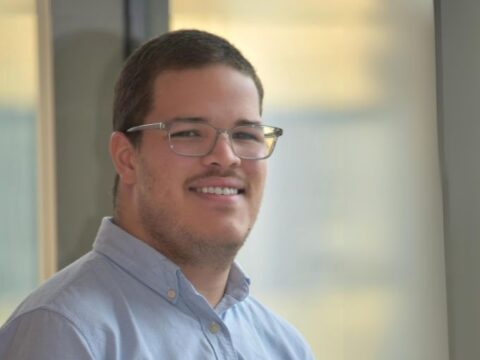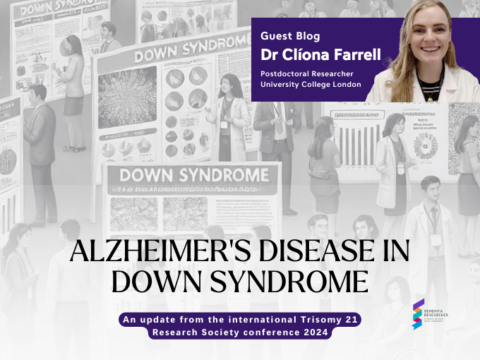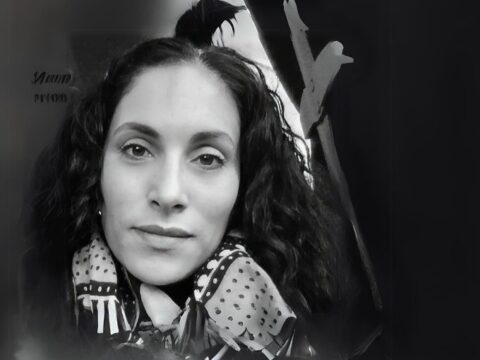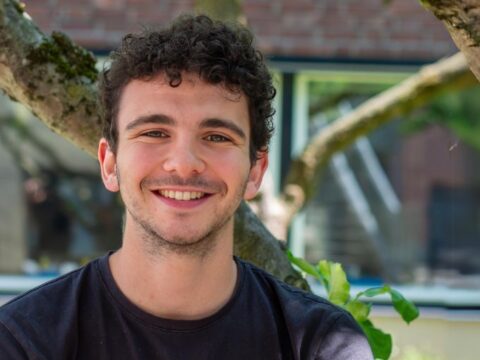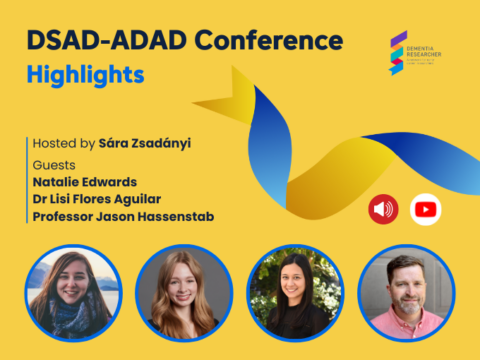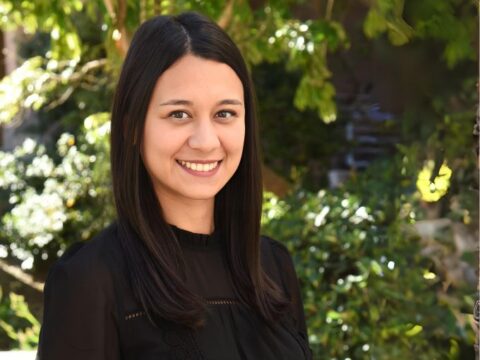
Natalie Edwards
Name:
Natalie Edwards
Job Title:
PhD Student
Place of work / study:
Columbia University
Area of Research:
I study the independent and interactive contributions of cerebrovascular disease and neuroinflammation to Alzheimer’s disease in adults with Down syndrome using neuroimaging techniques and biofluidics.
How is your research funded:
My work is supported by supported by US National Institutes of Health (NIH) grants RF1 AG079519, U19 AG068054, U01 AG051412, and U01 AG051406.
Tell us a little about yourself:
I grew up in a beautiful town on the north shore of Massachusetts called Newburyport. I still love going home where I spend most of my time in the kitchen with my dad, doing puzzles with my mom, driving around with my brother, watching endless hours of Boston sports, and constantly taking pictures of my dogs Harley and Huey. I went to college at George Washington University in Washington, DC where I studied neuroscience and biomedical engineering. I moved to New York City to begin a PhD at Columbia University working with Dr. Adam Brickman right after graduation where I have been fortunate enough to be involved in incredible science. New York has become my favorite place in the world and exploring the city with friends and family is my favorite pastime.
Tell us a fun fact about yourself:
I rode horses competitively growing up and my family always said I could ride a horse before I could ride a bike!
Why did you choose to work in dementia research?
Throughout high school, I always had, what at the time, was a fleeting fascination with the brain but as someone who loved science at the same time Grey’s Anatomy was released on Netflix, the only route to take was to become a doctor. My great-grandmother had Alzheimer’s disease and when I was born I had this little stuffed elephant named after her, Ethel. So when I began looking for research opportunities after my freshman year of undergraduate studies I immediately started looking into dementia research. I was lucky enough to begin working with Dr. Rachel Buckley at the Harvard Aging Brain Study and her mentorship and passion for the work made me truly fall in love with the possibilities of translational Alzheimer’s research and I haven’t turned back since.
What single piece of advice would you give to an early career researcher?
As an early career investigator myself I would say the most valuable piece of advice I have is not to take the situation you are in too seriously. Academia is an incredibly intimidating environment, especially for us just starting, but one conversation or one email can open up doors and collaborations that can change your career.

 Print This Post
Print This Post
